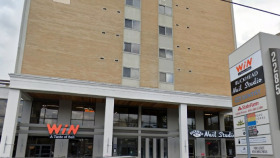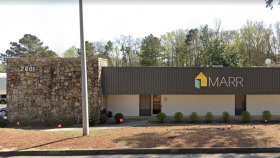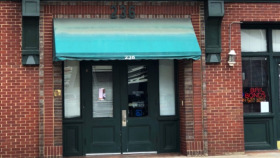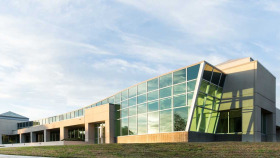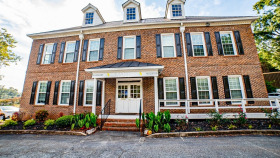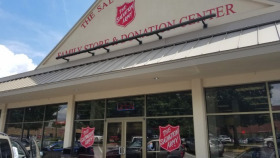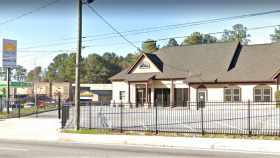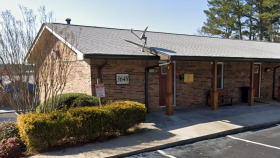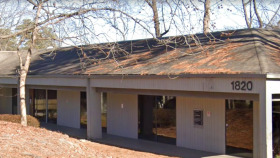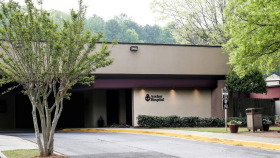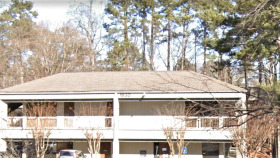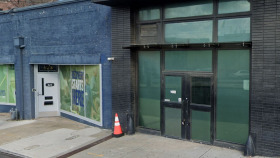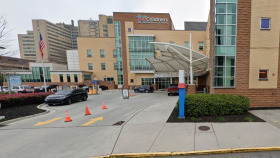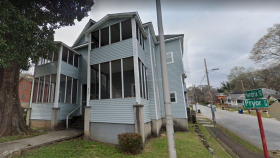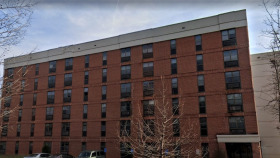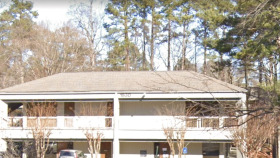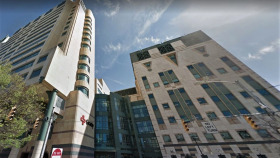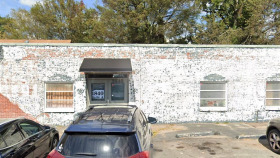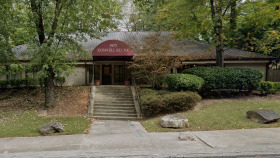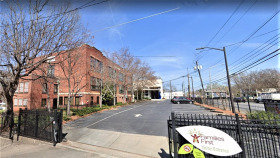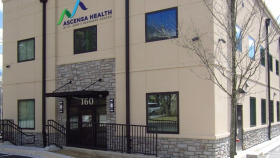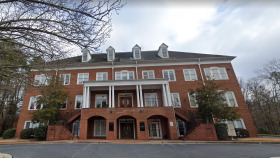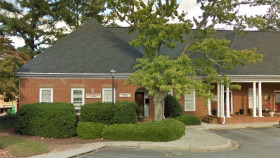Expert Insights
In July 2022, fentanyl rapid test strips, which can detect the presence of fentanyl in drug samples, became legal in Georgia. Although the move to declassify the test strips as being drug paraphernalia was controversial, many public health experts promoted the move as part of a “harm reduction” strategy. Decriminalizing the strips and making them more easily available came in response to the alarming increase in fentanyl poisoning deaths, especially among non-
intentional users.As a recovery professional, I’m still on the fence about many harm reduction strategies. But I do agree with the move to decriminalize fentanyl testing strips.
~ Rita Milios
How Expensive is Drug Rehab in Atlanta?
 The cost of drug rehab varies depending on the type of care provided. However, you can expect to pay less for rehab in Atlanta. In 2016, the cost of intensive inpatient across the nation in 2022 was $3,582, whereas residential treatment costs $7,084.2 Outpatient rehab for one person in Georgia was about $1,7102
The cost of drug rehab varies depending on the type of care provided. However, you can expect to pay less for rehab in Atlanta. In 2016, the cost of intensive inpatient across the nation in 2022 was $3,582, whereas residential treatment costs $7,084.2 Outpatient rehab for one person in Georgia was about $1,7102
Inpatient rehab is more expensive than outpatient services. For outpatient treatment, you can expect to spend between $1,400 and $10,000 for 30 days.2 Inpatient rehab costs more and ranges between $5,000 and $20,000 based on the facility. 2
How Much Does Drug Rehab Cost in Georgia?
Georgia is ranked 8th nationwide in terms of addiction treatment affordability, with an average cost of drug and alcohol rehab of $55,475 (without insurance).
- Medical detox is the most expensive, with an average cost of $136,766
- Long-term inpatient drug rehab in Georgia costs an average of $48,953
- Outpatient addiction treatment in Georgia costs an average of $8,134
- Outpatient methadone treatment is the most affordable, with an average cost of $7,227
Are There Low-Cost and Free Drug Rehab Centers in Atlanta?
State-funded drug and alcohol rehabs in Atlanta, Georgia, are delivered by the Georgia Department of Behavioral Health and Developmental Disabilities (DBHDD).3 State funding pays for community-based rehab throughout the state. DBHDD provides alcohol and drug rehab for uninsured people as well as those on Medicaid.
As of 2024, there were over 390 drug rehab facilities across the state of Georgia. Of those treatment facilities, the following numbers reflect how many offer free or low-cost addiction treatment:
You may receive rehab from state-funded rehab if you have limited income or options.3 The state-funded hospital with drug and alcohol rehab for Atlanta, Georgia, is located in Decatur. You can call the Georgia Access and Crisis Line (GCAL) at 1-800-715-4225 to get connected to state-funded outpatient services.3 If you are experiencing a crisis, GCAL can also connect you to crisis services.
Does Insurance Cover Rehab in Atlanta, GA?
Yes, insurance will typically cover drug and alcohol rehab in Atlanta, Georgia, because of the Patient Protection and Affordable Care Act (ACA) and the Mental Health Parity and Addiction Equity Act. The ACA extends Medicaid coverage to low-income adults without children and requires parity in mental health, medical, and surgical care.
Private Insurance
Private insurance refers to coverage through employment, professional associations, unions, or direct purchase from insurance companies.5 Most of your drug and alcohol rehab may be covered by private insurance.5 Popular private insurance providers include Blue Cross, Health Maintenance Organizations (HMOs), Aetna, and United HealthCare. All marketplace plans will consider drug and alcohol rehab as an essential benefit. Any market plan you select will cover counseling and drug and alcohol rehab.6
Medicaid
Medicaid is a joint state and federal program that provides health coverage for people with low income and limited resources.7 You can apply for Medicaid if you have limited finances or are disabled, pregnant, aged, or blind and a qualified immigrant or U.S. citizen.8 Medicaid covers crisis and preventive services but does not provide rental subsidies.7 However, you may use Medicaid support services to maintain housing with the help of housing authorities.7
Medicare
Medicare is a federal program that provides insurance coverage for people above 65 years and those with disabilities.7 You may receive drug and alcohol rehab services, such as family, individual, or group therapy, with Medicare. Non-residential, inpatient, and outpatient rehab services are provided under Medicare Parts A and B.7 You may receive drug coverage if you are enrolled in Medicare Part D. 7
Health insurers and group health plans are required by the Mental Health Parity and Addiction Equity Act (MHPEA) to provide drug and alcohol rehab benefits at the same level as medical and surgical care.9 This means your insurance plan can’t refuse to provide rehab.
You can call the number on the back of your insurance card to speak with your health insurer directly about your plan details.
How Do You Pay for Addiction Treatment in Atlanta?
The cost of drug and alcohol rehab should not be a barrier to treatment. You can finance addiction treatment in Atlanta, Georgia, even if you don’t have insurance or don’t qualify for free rehab. Your options include sliding scale, payment assistance, faith-based organizations, rehab scholarships, nonprofit treatment centers, or programs that accept Medicaid or Medicare.10
Choose a Program That Offers Payment Plans: Some programs will work with you to develop a schedule to pay your drug and alcohol rehab bills over time. You can find out payment plans by discussing the details of the payment plan with the rehab.9
Apply for a Rehab Scholarship: Some drug and alcohol rehab facilities offer grants or scholarships to assist with treatment costs. A rehab scholarship may not pay for the entire treatment.9 Rehab scholarships are optional resources that provide funds for drug and alcohol rehab. Some rehab scholarships require completion of the entire program as a condition for payment.9
Find a Sliding Scale Rehab Program: A sliding scale rehab program has fees that vary depending on your ability to pay.10 These programs offer reduced drug and alcohol rehab fees for people with low income or fewer financial resources from high expenses.10
How Does Atlanta Compare in Alcohol and Drug Use?
There are numerous options for quality alcohol and drug in Atlanta, Georgia. The rehabs in Atlanta, Georgia have unique features to meet the specific needs of your situation and lifestyle. You can find suitable drug and alcohol rehabs with 24-hour care, no overnight stays, or complete outpatient services. Atlanta rehabs are located in diverse neighborhoods in the city center and in the suburbs. The variety of financing options offered by drug and alcohol rehabs in Atlanta, Georgia may reduce the cost barriers for rehab.
Among residents of Atlanta, Georgia, who were 12 years and older in 2017:1

Close to 8% reported marijuana use in the past month

About 19% reported binge drinking in the past month

Nearly 2% reported cocaine use in the past year
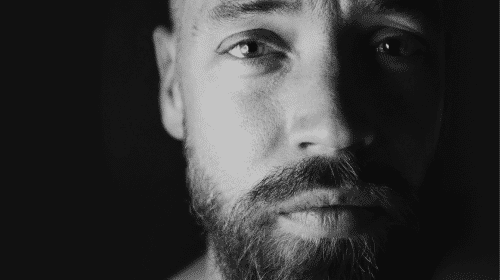
About 4% reported the use of nonmedical pain relievers in the past year
Among high school students:1
About 59% reported lifetime alcohol use
Almost 36% reported marijuana use
Close to 18% reported prescription drug use
About 10% reported the use of inhalants
Nearly 7% reported cocaine use
Almost 7% reported methamphetamine use
Alcohol and Drug Laws in Atlanta
The Good Samaritan Overdose Prevention Law: Drug and alcohol laws in Atlanta protect you from criminal liability when you help your loved ones with drug conditions. You can seek medical attention for yourself or your loved one during an overdose without fear of any consequences. The Good Samaritan Overdose Prevention Law protects anyone who seeks medical assistance for themselves or another person experiencing an overdose from criminal liability.15
Naloxone Standing Order: You can obtain a Naloxone without a prescription in Atlanta. Georgia has a Standing Order for naloxone prescription to prevent overdose protection.17 You can help your loved one by obtaining naloxone to treat overdoses in a timely fashion.
Drug Use Risk Reduction Program: Drug and alcohol laws in Atlanta require people to participate in the Drug Use Risk Reduction Program (RRP) if they are:16
- Driving under the influence.
- Underage with alcohol while driving.
- Boating under the influence.
- Driving with possession of illegal drugs.
Medical Amnesty Law: People in Atlanta have limited immunity when they seek medical attention for themselves or loved ones in possession of drugs or drug paraphernalia.17 The Medical Amnesty law provides civil and criminal immunity for administering or possessing Naloxone. Under this law, you or a loved one may have immunity from:17
- Drug or paraphernalia possession.
- Violation of patrol.
- Illegal consumption and possession of alcohol.
The availability of numerous drug and alcohol rehabs in Atlanta, Georgia, should make your search for a drug and alcohol rehab fairly simple.
Choosing the Right Level of Care
There are a variety of addiction treatment settings in Atlanta, Georgia, including inpatient, outpatient, partial hospitalization, and intensive outpatient programs.11
The variety enables you to choose based on your personal commitments and preferences for a specific intensity level. The severity of your condition will also determine the appropriateness of a treatment setting. As you progress in your treatment, you can transfer from an intensive outpatient or residential program to an outpatient program.7
Medical Detox Services
You may experience withdrawal symptoms when you stop taking drugs or alcohol during rehab. Medical detox refers to medical interventions used for managing the physical and emotional symptoms of drug withdrawal.7 This is the initial stage of drug and alcohol rehab, but it does not alter long-term drug abuse.
Medical detox helps in drug and alcohol rehab by preventing readmission from withdrawal symptoms.7 Opioid disorder and alcohol need medical detox. Your doctor may prescribe Methadone or Buprenorphine-Naloxone for medical detoxification of opioid addiction.7 Medications for alcohol medical detox include benzodiazepines.13
Inpatient Alcohol and Drug Rehab
Inpatient rehab programs offer medically monitored and managed intensive care delivered in an inpatient hospital.7 The services are delivered by a multidisciplinary team around the clock, 24-hours a day. A benefit of inpatient rehab is that you have timely access to healthcare professionals from different disciplines who can address your mental and physical needs.7 Access to 24-hour care is a benefit because it can prevent relapse.
Partial Hospitalization Programs
Partial hospitalization settings offer clinically intensive programming as well as counseling and education.7 Services in this setting are typically a step-down option that follows residential treatment. Partial hospitalization for drug and alcohol rehab is usually offered on weekdays for 6 to 8 hours.7
The intensity of partial hospitalization is about the same as residential treatment but with fewer restrictions.7 An important benefit is that it provides a structure for relapse prevention in a less restrictive setting. You can maintain some of your daily activities with partial hospitalization.
Intensive Outpatient Programs
Intensive outpatient programs deliver drug and alcohol rehab services for people with severe conditions.7 The services are in an outpatient setting and available around the clock. However, you are not required to spend the night at intensive outpatient programs.7 A benefit of intensive outpatient programs is that you can maintain family and community support since there is no overnight stay. You can also maintain household commitment while you are in intensive outpatient programs.
Standard Outpatient
Standard outpatient services offer individual and group behavioral interventions as well as medications.7 You can receive care in the standard outpatient setting at different times in the day or week.7 The advantage of drug and alcohol rehab in this setting is that you can receive care at a convenient time.
Standard outpatient services are suitable initially if you have mild or moderate rehab needs. 7 However, it may be appropriate after you complete a more intensive program. A standard outpatient service is appropriate if you need drug and alcohol rehab and treatment for a mental health condition.7
Telehealth and Online Addiction Treatment
Telehealth and online addiction treatment programs use digital technologies in delivering healthcare services.12 The following technologies are used in telehealth:7
- Web-based tools
- Electronic health records
- Mobile applications
- Telemedicine
Drug and alcohol rehab programs can deliver telehealth using the following:7
- Smartphones
- Video conferencing
- The internet
- Wireless communication
- Streaming media
Finding Specialized Drug Rehab in Atlanta
LGBTQ+
Rehabs that specialize in treating members of the LGBTQ+ community provide a safe space for patients to recover from drug and alcohol addiction. Providers also understand challenges unique to this community, such as internalized homophobia and transphobia, family rejection, social exclusion, and discrimination.
Faith-Based
Faith-based rehab programs offer a spiritual approach to addiction recovery, integrating prayer groups and literature studies into treatment plans. If your religion is important to you, you may want to consider finding a spiritual rehab.
Men-Only
Men-only rehab programs exclusively treat men who are recovering from addiction. Men are often stigmatized or judged for being “weak” for seeking treatment, and men-only treatment programs understand these challenges and can cater treatment specifically for their needs.
Women-Only
Women-only rehabs specialize in treating women and provide a safe space for women to process and recover, especially for those who may have experienced sexual assault or abuse from a male partner or loved one.
Teen
Teen rehabs understand the importance of adolescents and teens having their own space for addiction recovery in which they can support one another from an understanding and empathetic place. Teens may have different treatment needs than adults, such as help with family dynamics, co-occurring mental health disorders, and education.
Executive
Executive rehabs specialize in treating working professionals who need to continue working while recovering from drug or alcohol addiction. They typically combine the upscale features and setting of a luxury rehab with practical amenities, such as high-speed internet, private workrooms, and more.
Should You Travel to Atlanta for Rehab?
There are numerous programs with different funding options and service settings for various populations in Atlanta, Georgia. You may find the most suitable rehab for your unique circumstances and needs.
The neighborhoods in Atlanta include downtown, midtown, eastside, westside, and Buckhead. Each of these neighborhoods provides a different environment for drug and alcohol rehab.
Resources
- National Drug Early Warning System. (2017). Atlanta Metro Sentinel Community Site (SCS) Drug Use Patterns and Trends, 2017.
- National Center for Drug Abuse Statistics. (2022). Average cost of drug rehab.
- Georgia Department of Behavioral Health and Development Disabilities. (n.d.). Department of Behavioral Health and Developmental Disabilities.
- US Department of Health & Human Services. (2021). Mental health and substance use insurance help.
- Motbabai, R., Mauro, C., Wall. Barry. C. L., & Olfson, J. (2020). Private health insurance coverage of drug use disorder treatment: 2005-2018.
- Healthcare.gov. (n.d.). Mental and substance abuse coverage.
- US Department of Health and Human Services. (2016). Facing Addiction in America: The Surgeon General’s Report on Alcohol, Drugs, and Health [Internet]. Substance Abuse and Mental Health Services Administration (US).
- Georgia Department of Community Health. (n.d.). Medicaid eligibility.
- Substance Abuse and Mental Health Services Administration. (2019). Treatment options.
- Freerehabcenters.org. (n.d.). Atlanta, Georgia: Free alcohol, drug and other rehab resources in Atlanta.
- Substance Abuse and Mental Health Services Administration. (n.d.). Searching for treatment options.
- Benefits.gov. (n.d.). Substance abuse and treatment grant.
- Sachdeva, A., Choudhary, M., & Chandra, M. (2015). Alcohol Withdrawal Syndrome: Benzodiazepines and Beyond. Journal of Clinical and Diagnostic Research : JCDR, 9(9), VE01–VE07.
- Atlanta Convention and Visitor Bureau. (2022). Welcome to our neighborhoods.
- Thomson Reuters. (2022). Georgia Code Title 16. Crimes and Offenses § 16-13-5.
- Georgia Department of Driver Services. (n.d.). DUI/Risk reduction information.
- Georgia Department of Public Health. (n.d.). Law Enforcement and First Responders.
- Shechtman, Z., & Kiezel, A. (2016). Why do people prefer individual therapy over group therapy? International Journal of Group Psychotherapy, 66(4), 571-591.
- Smart Recovery. (2022). Our approach: Key areas of awareness and change


